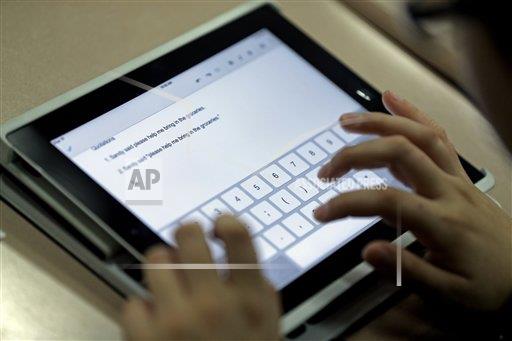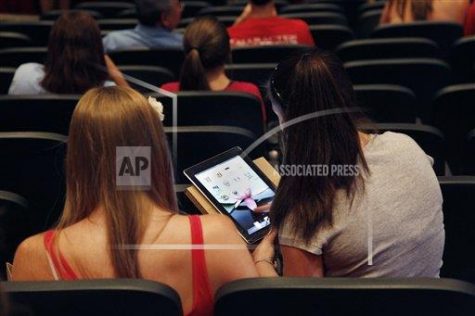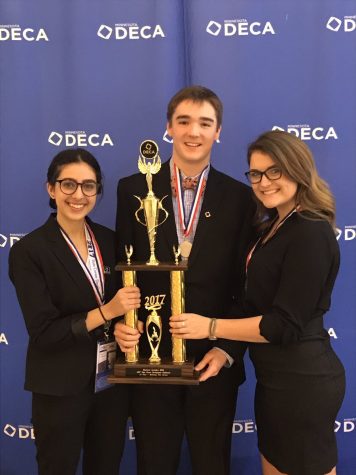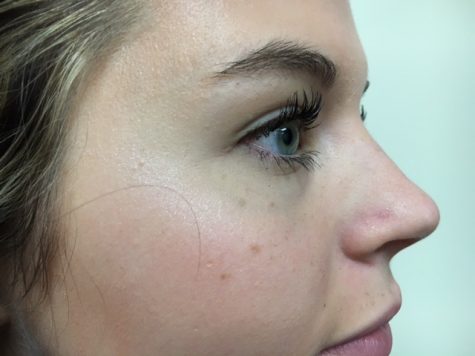Freshmen and Fresh Technology

(AP Photo/Morry Gash)
Technology usage is climbing by the second.
Out of the many new things happening at AVHS this year, the one-to-one computing program–also known as 1:1–is perhaps the most extensive. All ninth grade students have an iPad Mini to use both in and out of school for educational purposes, thereby learning more efficiently with the use of technology.
The 1:1 program is intended to enhance learning opportunities for students. This program has been explored and researched since the late 1990s. 1:1 computing helps both teachers and students take full advantage of apps and online resources to benefit their learning.
On the iPads, students have a special app store called Self Service that allows them to only download certain apps. These apps have been approved by the schools and are only for educational purposes.
However, there is one question that many people are asking: how beneficial is it?

Brenda Ford, who teaches Intermediate Algebra and Geometry to 9th and 10th grade students, loves the new program.
One of the many things that Ford loves about the iPads in class is that students don’t have to lug around those heavy textbooks. “They can have immediate access to their textbooks wherever they are.”
Freshman Karisa Wilson also likes that they have the ability to use the iPads in class. “I like being able to access Google Classroom and do internet assignments in class and not have to be in a computer lab or work on it at home.”
Ford also brought up the usefulness of the ability to take notes directly on the iPad. “That allows us to spend more time thinking and less time writing; a lot of the material is already written there.”
However, freshman Erica Smith disagrees. She says, “I found that it’s easier to remember stuff when I write it down.”
In an article by Medical Daily, Pam Muller and Daniel Oppenheimer performed a study at the University of California, Los Angeles. In the study, two groups of students learned the same lecture and were told to take notes on it, but one group was told to write the notes, and the other to type them. They were then tested on simple facts about the information.
The researchers found that the group that took notes electronically…did far worse.
According to the Association for Psychological Science, students that type are more likely to take verbatim notes. Even after the students were told not to take word-for-word notes, most still did. Verbatim notes do not allow students to create their own thoughts on the information they were just given. Therefore, they are more likely to not remember as well as they would with their own thoughts.
The article also states, “The results of the two experiments suggests that taking notes with a pen and paper, rather than a laptop, leads to higher quality learning, as writing is a better strategy to store and internalize ideas in the long haul.”
Teachers want students to learn in the best way possible, but should students rely on this new technology if it may not help them in the future?
Nevertheless, AVHS is only a few months into this new program, and there is still more research that can be done. As Brenda Ford said, “I think that we are using them for the basic things at this point.” With time will come more and more ways that the new 1:1 program will benefit students and teachers in and out of school.







